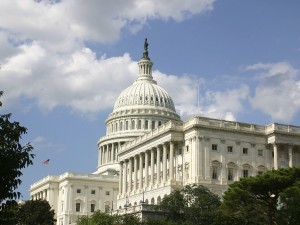 Last week, Acting U.S. Secretary of Education John King participated in multiple congressional hearings to discuss the potential of the Senate formally confirming his position as Secretary (he has been “Acting†since December 2015), the ongoing implementation of the Every Student Succeeds Act (ESSA), and the Administration’s most recent budget request for Fiscal Year (FY) 2017.
Last week, Acting U.S. Secretary of Education John King participated in multiple congressional hearings to discuss the potential of the Senate formally confirming his position as Secretary (he has been “Acting†since December 2015), the ongoing implementation of the Every Student Succeeds Act (ESSA), and the Administration’s most recent budget request for Fiscal Year (FY) 2017.
King first appeared before the House Education and the Workforce Committee (HEW) to highlight his department’s education priorities outlined in the President’s final budget request to Congress. As we shared earlier, the President proposed to fund the Carl D. Perkins Act’s (Perkins) basic state grant program at approximately $1.118 billion in the upcoming fiscal year— the same amount the program has received since FY 2014 or about $5.4 million below “pre-sequester†levels. Instead the Administration renewed its proposal for an “American Technical Training Fund†(ATTF), a competitive grant program that would focus limited investments in shorter-term job training initiatives in high-demand sectors.
This type of proposal has been an enduring theme in the President’s past budgets and was one that could be found throughout the budget request this year— proposals for a series of many new or competitive programs at the expense of existing ones. Chairman John Kline (R-MN) expressed significant concerns about this at the outset of the hearing, arguing that these proposals were untested and would lead to “chronically underfunding†existing investments in education.
House CTE Caucus co-Chair Rep. Glen Thompson (R-PA) reiterated these concerns further into the hearing. Specifically he pressed the Acting Secretary to explain why the Administration had proposed the ATTF— which would only support 5-25 programs in the country according the U.S. Department of Education’s (USDE) own estimation— when it had reported the same week that many Career Technical Education programs throughout the country had waiting lists due to lack of capacity. King responded by highlighting the Admisntration’s “Next Generation High School†efforts, a separate proposal from ATTF. Rep. Marcia Fudge (D-OH) also expressed similar concerns about the ATTF proposal, particularly related to the challenges low-income communities would face when trying to compete for these grants.
Further in the week, King returned to HEW to talk about the ongoing implementation of ESSA. Here he focused his remarks on USDE’s plans for the law’s implementation over the coming few years and the specific resources his department was developing for these purposes. A new ESSA FAQ resource was published by USDE shortly after this hearing.
Later that same day, King appeared before the Senate Health, Education, Labor, and Pensions (HELP) Committee as members there considered his nomination to formally serve as U.S. Secretary of Education for the remainder of President Obama’s time in office. During his remarks the Acting Secretary highlighted his experience as Commissioner of Education in New York and his efforts to expand CTE offerings in the state through a partnership with IBM and the expansion of their P-TECH program.
King also emphasized the need to reauthorize the Perkins Act saying, “Let’s make 2016 the year we transform career and technical education for the 21st century by driving innovation and quality.†The HELP committee is set to vote on his nomination in the coming weeks and it is widely expected that the full Senate will take his nomination up sometime following that.
Ask Your Members of Congress to Support Perkins Funding!
This month, Members of Congress in both Chambers will have the opportunity to voice their support for additional Perkins funding in the upcoming FY 2017 budget and appropriations process.
CTE Caucus co-Chairs Rep. Thompson (R-PA) and Langevin (D-RI) are currently circulating a letter in the House that calls for “pre-sequester†funding levels for Perkins in FY 2017— about $5.4m over what is currently being invested in the law’s basic state grant program. Senator Blumenthal (D-CT) is circulating a similar letter in the Senate with the same ask of Congressional appropriators in that chamber.
Perkins is the sole federal investment in CTE and provides foundational support for high-quality CTE programs found in every State and congressional district. However due to difficult decisions made over the past few years, Perkins funding has declined by 13 percent since FY 2007— approximately $170 million less now goes to support high schools, tech centers, and community colleges via the Perkins Act.
Advance CTE encourages you to reach your to your Members of Congress to urge them to sign-on in support of these letters. To do so, please visit the Association for Career and Technical Education’s (ACTE) CTE Action Center to email your Representative and / or Senator and voice your support!
Steve Voytek, Government Relations Manager

